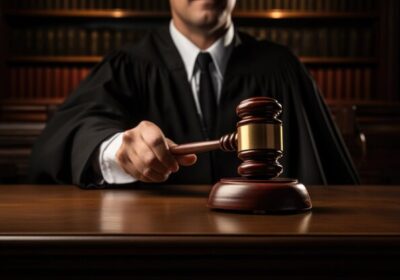What To Expect From Your Oceanside Personal Injury Lawyer: A Path To Compensation
In the complex world of personal injury law, the role of your lawyer is paramount to securing the compensation you deserve. Your Oceanside personal injury lawyer is not only there to guide you through the maze of legal processes but to effectively advocate for you, ensuring your rights are protected while constructing a compelling case on your behalf. This article will provide an in-depth look into the qualifications you should expect from your lawyer, the process of building a robust case, and the potential paths to compensation. However, one might wonder, what are the implications of the initial consultation, and what are the steps that follow the verdict?
Understanding Personal Injury Law

To comprehend the full spectrum of personal injury law, it is crucial to delve into its fundamental principles, which guide the legal processes involved in seeking compensation for damages. This understanding is imperative for those seeking restitution for their injuries, and the types of injuries covered under such law are diverse. They range from physical harm, such as car accidents, slips, and falls, to emotional or psychological harm.
Legislation changes in personal injury law have broadened the scope of claimable damages, introducing more robust protection for victims. These changes have been instrumental in shaping the current practices, making the process more transparent, and ensuring victims receive fair compensation for the injuries they’ve sustained.
It is also important to note that the legislation changes have set more rigorous standards for proving liability. This requires a meticulous review of the injury types and the circumstances surrounding each case. Understanding these changes and nuances in personal injury law can mean the difference between a successful claim and a denied one. Therefore, it is indispensable to have comprehensive knowledge and a keen understanding when navigating this complex field.
Identifying Your Lawyer’s Qualifications
Having a comprehensive understanding of personal injury law is a critical first step, however, equally important is the ability to assess the qualifications of a potential personal injury lawyer, ensuring they are equipped to navigate the complexities of your case.
To determine a lawyer’s expertise, you should assess their depth of knowledge in personal injury law, the number of successful cases they’ve had, and their strategy for handling your specific case. This ensures the lawyer possesses the right skills and experience to efficiently manage your case.
Furthermore, professional accreditation is a key factor to consider. A reputable personal injury lawyer should have certifications from recognized legal bodies. These accreditations signify that the lawyer has undergone rigorous training and evaluation and adheres to high industry standards.
In addition, consider the lawyer’s reputation within the industry and their relationships with insurance companies, judges, and other lawyers. This can greatly influence the outcome of your case.
Initial Consultation: What to Expect

The initial consultation with an Oceanside personal injury lawyer is a critical step towards securing compensation. It is a process that demands a clear understanding and adequate preparation of your case specifics. In this section, we will guide you on what to expect during this initial meeting and how to effectively organize your case details for a compelling argument.
Understanding the Consultation Process
Embarking on your initial consultation with an Oceanside personal injury lawyer can feel like stepping into uncharted territory, but understanding what to expect can bring clarity and confidence to this crucial stage of your legal journey.
- Lawyer Selection: The consultation is your opportunity to assess the lawyer’s competence, experience, and demeanor. Choose someone who understands your needs and is committed to your case.
- Case Timelines: Your lawyer should provide a realistic timeline for your case, explaining the processes involved.
- Fee Structure: Understand how your lawyer charges for their services. They should be transparent about costs.
- Communication: Evaluate the lawyer’s communication style. It’s crucial to find someone who’ll keep you informed throughout the process.
With the right preparation, your initial consultation can be a productive and empowering experience.
Preparing Your Case Details
To ensure a fruitful initial consultation, meticulously gathering and organizing all pertinent details about your case is of paramount importance. Your oceanside personal injury lawyer will need a comprehensive case timeline, detailing the sequence of events leading up to, during, and following the incident.
This timeline should be supported by relevant documents, and carefully organized to corroborate your claims. Efficient document organization speeds up the process, enabling your lawyer to swiftly build a solid case. This includes medical records, witness testimonials, photographic or video evidence, accident reports, and any communication with insurance companies. Remember, the more details you provide, the better equipped your lawyer will be to advocate for your rights and secure the compensation you deserve.
Gathering And Reviewing Evidence
In pursuit of a successful personal injury claim, diligent gathering and meticulous review of all pertinent evidence form a crucial step.
The process begins with evidence preservation. This involves safeguarding any physical evidence that could substantiate your claim. It includes, but is not limited to, damaged property, clothing worn during the incident, and medical records.
Next is the vital step of witness interviews. These individuals can provide firsthand accounts of the incident, thereby strengthening your claim.
Here are four compelling reasons why this evidence-gathering process is critical:
- Substantiating Your Claim: Concrete evidence provides undeniable proof of the incident and your resulting injuries.
- Ensuring Credibility: Witness testimonies can corroborate your narrative, enhancing your credibility with insurance companies and in court.
- Maximizing Compensation: Thorough evidence can help ensure that you receive the full compensation you’re entitled to.
- Holding the Guilty Accountable: Clear evidence can help ensure that those responsible for your injuries are held accountable.
Your Oceanside personal injury lawyer will guide you through this process, ensuring that every piece of evidence is systematically gathered, preserved, and reviewed. This meticulous approach is key to achieving your rightful compensation.
Building A Compelling Case
Undeniably, constructing a compelling case is a pivotal stage in the process of a personal injury claim, requiring both strategic consideration and legal expertise. A key factor in this stage is the case presentation, wherein the collected evidence is presented in a manner that communicates the plaintiff’s situation and the defendant’s liability.
Having a well-organized body of evidence is a crucial element in building a persuasive case. This evidence organization process involves arranging the gathered materials in a logical sequence that tells a compelling story of the incident. It can include various forms of evidence such as medical records, eyewitness testimonies, photographs, and more. The aim is to provide a comprehensive overview of the incident, the injury sustained, and the impact it has had on the plaintiff’s life.
Your Oceanside personal injury lawyer will utilize their legal acumen to meticulously construct a case that highlights the defendant’s negligence or wrongdoing. They will strategically present the evidence to ensure that the jury understands the gravity of the situation, thereby increasing the likelihood of a favorable verdict. In essence, a compelling case can be the key that unlocks the door to rightful compensation.
Communication With Your Lawyer

While a meticulously constructed case is a significant determinant of success, equally important is effective and open communication with your Oceanside personal injury lawyer. A lawyer’s responsiveness often sets the tone for the relationship, and it is crucial that you feel heard and valued.
- Prompt Response: Your lawyer should respond to your calls, emails, or messages promptly. This not only shows respect for your time but also keeps you informed about the progress of your case.
- Clear Communication: Your personal injury lawyer should explain the case details and legal procedures in a way that you understand. They should be patient, willing to answer your queries, and make complex legal jargon understandable.
- Confidentiality Importance: Lawyers are bound by the legal principle of attorney-client privilege. This means they cannot share your private information without your approval. A lawyer who respects this principle demonstrates integrity and earns your trust.
- Honest Feedback: Your lawyer should provide honest, constructive feedback about your case. Even when the news isn’t good, a trustworthy lawyer will tell you the truth and discuss the next steps.
Negotiating With Insurance Companies
Navigating the labyrinthine world of insurance claims can often be a daunting task, making the expertise of an Oceanside personal injury lawyer in negotiating with insurance companies an invaluable asset. Armed with a deep understanding of claim evaluation strategies, these professionals are adept at determining the true value of a claim, armed with the knowledge of medical costs, rehabilitation expenses, and potential long-term disability implications.
A competent lawyer is also well-versed in policyholder rights awareness. They are aware of the various tactics insurance companies may employ to limit their payout and can effectively counter these to protect their clients’ rights. This includes understanding the fine print of insurance policies, the timeframe for filing a claim, and the right to appeal a denied claim.
In essence, your Oceanside personal injury lawyer serves as a bulwark against the potential pitfalls of insurance negotiation. They ensure you are not shortchanged, guiding you through the complex process and advocating for your best interests. By leveraging their expertise, you significantly increase your chances of securing a fair settlement, providing a smoother path to your compensation.
The Role Of Your Lawyer In Mediation

Beyond the realm of insurance negotiations, your Oceanside personal injury lawyer also plays a pivotal role in mediation, another crucial avenue in your pursuit of a fair settlement. The mediation process requires a unique set of skills and a deep understanding of the law, which your attorney undoubtedly possesses. For more insights on navigating personal injury claims, consulting with a skilled attorney can be invaluable in ensuring you achieve the best possible outcome in your case.
In this journey towards compensation, your lawyer’s role in mediation can be broken down into four essential actions:
- Developing Mediation Strategies: Drawing from their wealth of experience, your lawyer will formulate a strategy based on the unique circumstances of your case.
- Advocating for Your Best Interests: They will champion your cause, making sure your voice and story are heard.
- Negotiating with the Other Party: Your lawyer will negotiate with the defendant’s legal team, aiming for a fair settlement.
- Upholding Lawyer’s Ethics: Throughout the mediation process, your lawyer will adhere to a strict code of professionalism, assuring that your rights are protected and respected.
Preparing For Trial
If mediation does not result in a satisfactory settlement, your Oceanside personal injury lawyer will meticulously prepare your case for trial, a process that demands an exceptional level of expertise, strategic planning, and a thorough understanding of legal procedures. The trial preparation phase is critical and involves several key components, including selecting jury members and witness preparation.
The process of selecting jury members is a strategic task that requires analytical acumen and a deep understanding of human behavior. Your lawyer will vet prospective jurors to ensure an unbiased jury that can objectively evaluate the evidence presented.
Witness preparation is another crucial aspect of trial preparation. Your lawyer will work closely with all witnesses to ensure they are fully prepared to testify. This preparation includes reviewing facts, rehearsing testimony, and educating witnesses about court protocol and the cross-examination process.
Your Oceanside personal injury lawyer is committed to preparing a compelling case that accurately represents your interests. They will employ strategic planning and meticulous attention to detail to increase your chances of obtaining the compensation you deserve. This comprehensive trial preparation is designed to instill confidence, allowing you to focus on your recovery while your lawyer navigates the complexities of the legal system.
The Trial Process Explained
Navigating the intricacies of the trial process can often seem daunting, but a clear understanding of its structure can undoubtedly demystify its complexities. From comprehending the inner workings of the court system to grasping the key steps in trial proceedings and the indispensable role of a jury, each aspect plays a pivotal part in personal injury cases. This knowledge not only helps in preparing for trial but also serves as the foundation for securing rightful compensation.
Understanding The Court System
To fully comprehend the path to compensation, it’s crucial to understand the intricate workings of the court system, specifically the trial process.
- Courtroom Etiquette: This is the conduct expected in a court of law. It includes respect for the judge, punctuality, and proper attire, among other things.
- Legal Terminologies: These are specific terms used in court proceedings. Comprehending them allows you to follow the trial process effectively.
- Trial Process: This is the series of steps that a lawsuit goes through in court, from the initial filing to the final verdict.
- Jury Role: The jury plays a critical role in deciding the facts of the case and delivering a verdict.
Understanding these factors can evoke a sense of preparedness and control, making the journey to compensation less daunting.
Steps In Trial Proceedings
Having acquired an understanding of the court system’s fundamentals, we now proceed to elucidate the step-by-step procedure that a lawsuit follows in a trial, which is central to a personal injury claim. The process commences with the implementation of jury selection strategies, where an impartial jury is chosen to ascertain the facts of the case. This is a crucial stage as the jury’s perspective can heavily influence the trial outcome. Following this, evidence presentation techniques come into play. This involves the meticulous display of all relevant proofs, such as medical reports, eyewitness testimonies, and photographic evidence, to bolster the plaintiff’s claim. Each step is pivotal, requiring a personal injury lawyer’s expertise to navigate the complexities effectively, thereby increasing the chances of securing favorable compensation.
Role Of A Jury
Central to the trial process, the role of the jury serves as the cornerstone of justice, tasked with the impartial evaluation of evidence and determination of facts, ultimately steering the direction of a personal injury lawsuit.
- Jury Selection: This crucial first step ensures a fair and impartial group of citizens. Bias or prejudice can tilt the scales of justice, making this phase critical.
- Understanding the Case: Jurors must grasp complex legal concepts and procedures, often completely foreign to them.
- Juror Responsibilities: These involve objectively analyzing evidence, determining the credibility of witnesses, and deciding liability based on the law and facts presented.
- Verdict: The final, often emotionally charged step where the jury’s decision can change lives forever, awarding compensation to the injured or absolving the defendant.
After The Verdict: Next Steps
Once the verdict in your personal injury case has been rendered, it’s essential to understand the subsequent steps to ensure proper compensation. The conclusion of a trial often unleashes a whirlwind of post-verdict emotions, ranging from relief to frustration. Your Oceanside personal injury lawyer will guide you through these complex feelings, providing a structured path forward informed by their vast witness experiences.
Your attorney will meticulously review the verdict to ascertain if it’s consistent with the law and evidence presented during the trial. If there are grounds for appeal, your lawyer will discuss these options with you. Additionally, your attorney will ensure the court’s judgment is appropriately entered, setting in motion the process of collecting your compensation.
If the defendant refuses to pay or delays payment, your lawyer may take legal measures to enforce the payment. These steps could include garnishing wages, seizing property, or other means of collection as permitted by the law. Remember, your attorney’s role doesn’t end with the verdict. They will remain your steadfast advocate, ensuring the verdict translates into the compensation you deserve and helping you navigate the legal and emotional aftermath of your personal injury case.
Legal Fees And Payment Structures
While ensuring you receive the compensation you deserve is paramount, it’s equally critical to understand the legal fees and payment structures typically associated with hiring an Oceanside personal injury lawyer.
- Contingency agreements: Many personal injury lawyers work on a contingency basis, meaning they only get paid if you win your case. This arrangement can provide peace of mind, as it aligns your lawyer’s incentives with your own.
- Fee transparency: Your lawyer should provide a clear explanation of all fees associated with your case. This includes potential costs for expert witnesses, private investigators, and administrative expenses.
- Hourly rates: Some lawyers may charge an hourly rate, especially for cases that are particularly complex or time-consuming. It’s essential to understand these rates upfront to avoid surprises.
- Retainer fees: Some lawyers may require a retainer fee, which is a sum of money paid upfront. This fee is usually deducted from the final settlement or judgment.
Understanding these payment structures can help you make an informed decision when hiring a personal injury lawyer. It’s important to feel confident in your lawyer’s expertise, but also their commitment to fee transparency and fair payment agreements.
Frequently Asked Questions (FAQs)!!!
Ans: Your lawyer can provide substantial support for emotional or psychological impacts, including therapy assistance and directing you toward appropriate mental health resources. They can also advocate for these damages in your compensation claim.
Ans: The duration of the legal process varies, depending largely on factors such as evidence gathering and settlement negotiation. However, most personal injury cases can take anywhere from a few months to several years to conclude.
Ans: Managing medical bills and other expenses during a case involves strategic insurance negotiations to cover immediate costs and prudent budgeting to handle potential out-of-pocket expenses pending the final settlement or verdict.
Ans: Yes, your personal injury lawyer can assist with related matters such as property damage claims. They can help with claim documentation, insurance negotiations, and ensure you receive fair compensation for all damages incurred.
Ans: Understanding the tax implications of personal injury compensation involves comprehending compensation structuring and tax deductibility. A knowledgeable attorney or tax advisor can provide insight into potential tax liabilities or exemptions associated with your specific compensation arrangement.
For a More Informative Article, Please Click Below!!



